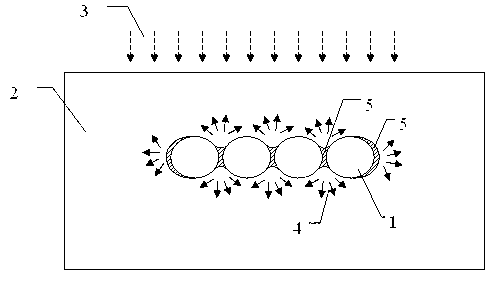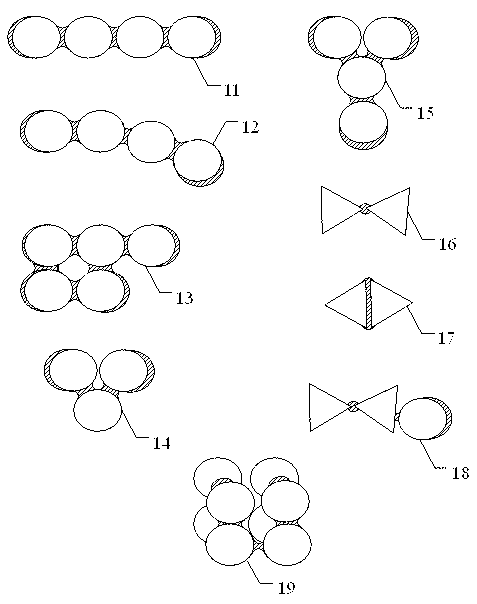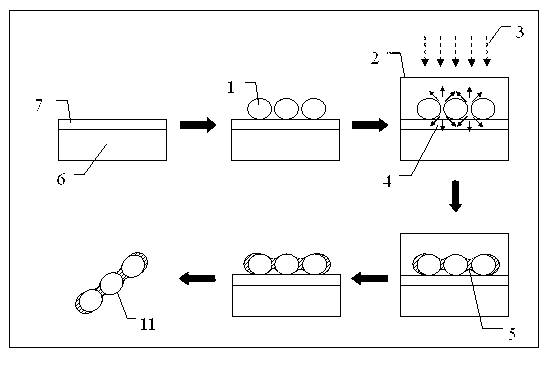Nano-linking method based on photo-curing with nonlinear frequency shift effect
A nonlinear, photocurable technology, applied in the field of photocurable nanolinks that break through the diffraction limit of traditional optics
- Summary
- Abstract
- Description
- Claims
- Application Information
AI Technical Summary
Problems solved by technology
Method used
Image
Examples
Embodiment 1
[0033] Prepare self-assembled nano-particle microstructures on the surface of a solid substrate, and apply the nano-linking method proposed in the present invention to link the nanoparticles. The specific preparation process steps are as follows Figure three Shown:
[0034] The first step: a layer of organic polymer film 7 is prepared on the surface of the solid substrate 6.
[0035] Step 2: Using chemical self-assembly technology, deposit nanoparticles 1 with surface plasmon resonance characteristics on the surface of organic polymer 7. The spacing of nanoparticles 1 can be controlled by self-assembly technology. In order to achieve effective linkage, the spacing is generally zero to Between tens of nanometers.
[0036] The third step: drip or spin-coating the ultraviolet photosensitive polymer 2 on the surface of the substrate, and irradiate the sample with a low-frequency visible or near-infrared light source. The incident light forms a significant local light scattering enhanc...
Embodiment 2
[0041] The nano-linking method proposed by the present invention is used to directly realize the nano-particle linking in the ultraviolet photosensitive polymer 2 solution. The specific steps include:
[0042] The first step: using an optical method, dope high-concentration nanoparticles 1 with surface plasmon resonance characteristics in the ultraviolet photosensitive polymer 2 solution.
[0043] Step 2: Add chemicals to the solution of UV-sensitive polymer 2 and wrap it on the surface of nanoparticle 1 to form a stable chemical coordination bond, so that nanoparticle 1 can form dynamic self-assembly in the solution, with the nanoparticle spacing between zero and Between tens of nanometers.
[0044] The third step: irradiate the ultraviolet photosensitive polymer 2 solution with a low-frequency visible light or near-infrared light source. The incident light forms a significant local light scattering enhancement between the dynamically self-assembled nanoparticles 1, and the non-li...
PUM
 Login to View More
Login to View More Abstract
Description
Claims
Application Information
 Login to View More
Login to View More - R&D
- Intellectual Property
- Life Sciences
- Materials
- Tech Scout
- Unparalleled Data Quality
- Higher Quality Content
- 60% Fewer Hallucinations
Browse by: Latest US Patents, China's latest patents, Technical Efficacy Thesaurus, Application Domain, Technology Topic, Popular Technical Reports.
© 2025 PatSnap. All rights reserved.Legal|Privacy policy|Modern Slavery Act Transparency Statement|Sitemap|About US| Contact US: help@patsnap.com



